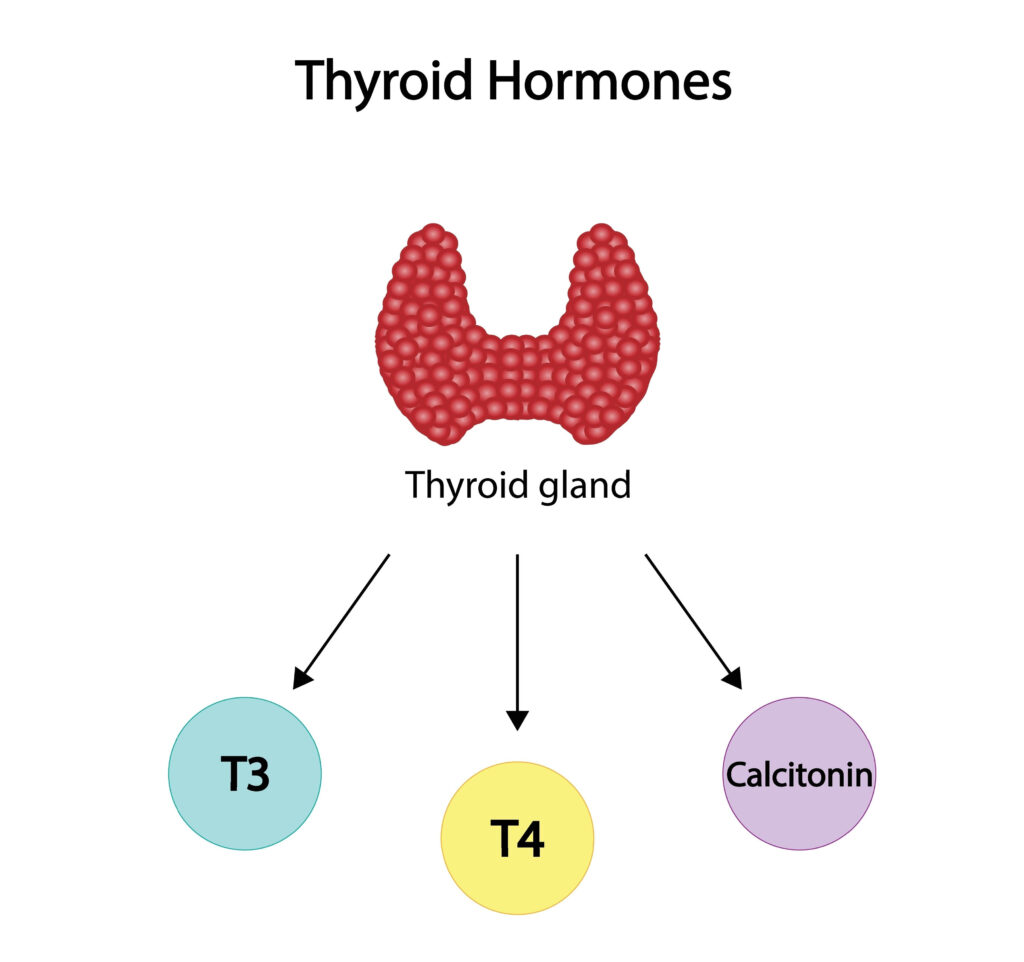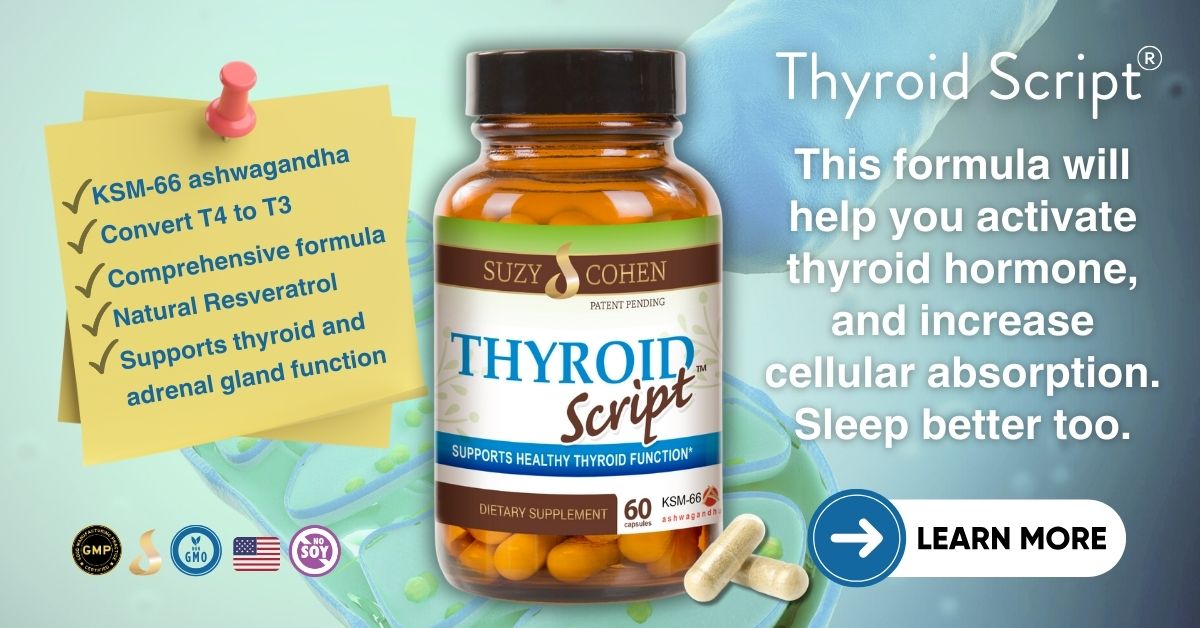What's On This Page?
ToggleHyperthyroidism is easy to treat, but if it’s undiagnosed you may end up with prescriptions for psychotropic drugs instead of thyroid medication.
This is pretty scary because as parents we want to do everything we can for our children. But let me ask you this, would you be assertive enough to ask, and perhaps even brash enough to push for a blood test if your physician made you uncomfortable, or looked at you like you were wacko?
I hope you could be that way because there’s an interesting connection that is now known between mental health problems and thyroid disease.

This information isn’t suddenly surfacing, it’s been known to thyroid experts, but now it is being widely discussed thanks to a brand new STUDY that tightened the correlation between hyperthyroidism and mental conditions such as ADHD, anxiety, suicide, depression and bipolar disease.
The researchers set out to evaluate the number of kids between the age of 10 and 18 who had specific emotional and cognitive problems as well as hyperthyroidism. They wanted to compare the proportion to those who did not have hyperthyroidism.
So they tracked about 1,894 girls and 585 boys who were diagnosed with hyperthyroidism. The symptoms vary, but can include rapid heart rate, sweating, insomnia, anxiety, goiter, nervousness, weight loss and high blood pressure. The autoimmune version of this is Graves’ disease. If you’d like more information on Graves’ disease, read my other article, The Secret Nutrient that Helps Graves’ Disease.

Anyway, these kids were tracked for years, and they found some stunning and scary associations. The most striking of which was that suicides were 5 times more likely to occur in that group compared to the kids who did not have high levels of thyroid hormone.
There is a very clear relationship between hyperthyroidism and mental health conditions. And you might be wondering why someone would have elevated levels of thyroid hormone to begin with? That’s a good question, and there are many causes and risk factors for high thyroid. It could be autoimmune driven, due to foods in the diet that produce the self attack.

Cortisol Connection to Hyperthyroidism
There is a connection between Graves’ disease (hyperthyroidism) and cortisol fluctuations. I think it’s worth 10 minutes of your time to read up on this connection so I wrote this article for you which explains it: How Stress and Cortisol Impacts Hashimoto’s and Graves’ Disease.
It could be bacterial or viral. It may result from excessive iodine, zinc or selenium supplements or foods, excessive amounts of vitamin A or B6 or even B12. Exposure to Agent Orange (like our veterans may have encountered).
There are so many other causes, including living near a radioactive nuclear facility, Cape Canaveral (think of rocket fuel with perchlorates) or other military or air force bases where the perchlorate get into the drinking water and impact the local residents.
I could go on and on, that was just off the top of my head. Why one has hyperthyroidism is obviously very individual. But why one does not get properly diagnosed… well that is my beef today. So many kids fall through the cracks and just get put on mind-bending drugs forever and ever, without anyone zooming in to see what the root cause was.
Is it Really ADHD?
The trouble as I see it is that kids will get pinned with ADHD or bipolar, depression, schizophrenia, suicidal ideation or other conditions on this continuum, and sadly get heavily medicated (sometimes for life) without ever getting a thyroid blood test. While the medications for these disorders may help some of the kids, it will not help all of them. It will also be very superficial in that none of them ever treat the root cause, which again may very well be hyperthyroidism.
The treatment for hyperthyroidism is much different than it is for bipolar, ADHD and the others. Follow me? So this is a tragically overlooked (but easy to diagnose) problem that your teen may be dealing with.
Lab Results
That’s why if your physician says he or she would like to start sertraline for depression, or lithium for bipolar, or methylphenidate for attention-deficit, I want you to remember my article and be inspired to request a thyroid level first. Do not be pacified by a “TSH test” that is not going to show you anything!
You will want more tests in addition to the TSH, for example:
• Free T3
• Total T3
• Free T4
• Total T4
• Autoimmune antibodies to rule out Hashimoto’s or Graves’ disease.
You may be interested in the fact that “normal” levels of Free T4 and TSH are not the same as optimal results! That comes as a shock to everyone who finds out. I wrote an article for you in order to explain it so grab a copy of your thyroid lab results and CLICK HERE to read my other article on this. It’s called, 5 Essential Tips to Interpret Your Thyroid Lab Results.
In the STUDY just published, the highest ratio of kids were diagnosed with ADHD, over 68% of them. Makes me wonder if properly managing their thyroid hormone levels would be more appropriate and cheaper for you than all those stimulant medications. I will leave this up to you and your psychiatrist to discuss. It’s worth the conversation.
If your child responds to stimulant medications and does well on them, you might be interested in this article I wrote called, Caffeine is An Alternative to Stimulants for ADHD.

The take-home point has been made. Please know that there are many overlapping symptoms between hyperthyroidism and mental health conditions. If you or your child has symptoms that impact their emotional well-being, it’s probably a good idea to have a full thyroid work up.
If you have an interest in thyroid illness, I have both a book called Thyroid Healthy: Lose Weight, Look Beautiful and Live the Life You Imagine and also a beautiful easy-to-read magazine, Health & Radiant Aging.

Suzy Cohen, has been a licensed pharmacist for over 30 years and believes the best approach to chronic illness is a combination of natural medicine and conventional. She founded her own dietary supplement company specializing in custom-formulas, some of which have patents. With a special focus on functional medicine, thyroid health and drug nutrient depletion, Suzy is the author of several related books including Thyroid Healthy, Drug Muggers, Diabetes Without Drugs, and a nationally syndicated column.


